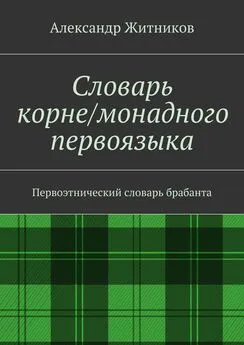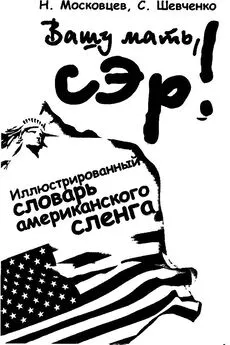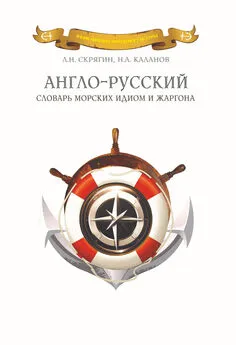Adam Makkai - Словарь американских идиом: 8000 единиц
- Название:Словарь американских идиом: 8000 единиц
- Автор:
- Жанр:
- Издательство:неизвестно
- Год:неизвестен
- ISBN:нет данных
- Рейтинг:
- Избранное:Добавить в избранное
-
Отзывы:
-
Ваша оценка:
Adam Makkai - Словарь американских идиом: 8000 единиц краткое содержание
Это обновленное и дополненное издание, содержащее более 8000 идиоматических
слов и выражений, причем каждое из которых снабжено грамматическим объяснением
и практическим примером. Словарь содержит лексемные идиомы, фразеологические
единицы и поговорки, имеющие особенное значение. В нем приведены наиболее
употребительные выражения только американского английского языка. Этот словарь — идеальное пособие для студентов, часто разъезжающих бизнесменов и просто
путешественников.
Словарь американских идиом: 8000 единиц - читать онлайн бесплатно полную версию (весь текст целиком)
Интервал:
Закладка:
[go to show]or [go to prove] {v. phr.} , {informal} To seem to prove; act or serve to show (a fact); demonstrate. — Often used after "it". •/ Our team beat a bigger team, and it just goes to show you can win if you play hard enough. / •/ The hard winter at Valley Forge goes to show that our soldiers suffered a great deal to win the Revolution. /
[go to the chair] {v. phr.} To be executed in the electric chair. •/ After many stays of execution, the criminal finally had to go to the chair. /
[go to the devil] {v. phr.} , {informal} 1. To go away, mind your own business. — Used as a command; considered rude. •/ George told Bob to go to the devil. / •/ "Go to the devil!" said Jack, when his sister tried to tell him what to do. / 2. To become bad or ruined; become useless. •/ The boy got mixed up with bad company and began to steal and rob his friends. He went to the devil. / •/ Mr. Jones went to the devil after he lost his business. /
[go to the dogs] {v. phr.} , {informal} To go to ruin; to be ruined or destroyed. •/ The man went to the dogs after he started drinking. / •/ After the death of the owner, the business went to the dogs. / •/ The team went to the dogs when its best players got hurt. / Compare: GO TO POT.
[go to the trouble]or [take the trouble] {v. phr.} To make trouble or extra work for yourself; bother. •/ John told Mr. Brown not to go to the trouble of driving him home. / •/ Since your aunt took the trouble to get you a nice birthday present, the least you can do is to thank her. / Compare: PUT OUT(5).
[go to town] {v. phr.} , {slang} 1. To do something quickly or with great force or energy; work fast or hard. •/ The boys went to town on the old garage, and had it torn down before Father came home from work. / •/ While Sally was slowly washing the dishes, she remembered she had a date with Pete that evening; then she really went to town. / Compare: IN NO TIME, MAKE TIME. Contrast: TAKE ONE’S TIME. 2. or [go places]. To do a good job; succeed. •/ Our team is going to town this year. We have won all five games that we played. / •/ Dan was a good student and a good athlete; we expect him to go places in business. /
[go to waste] {v. phr.} To be wasted or lost; not used. •/ The strawberries went to waste because there was nobody to pick them. / •/ Joe’s work on the model automobile went to waste when he dropped it. / Compare: IN VAIN.
[go to wrack and ruin] {v. phr.} To fall apart and be ruined; to become useless. •/ The barn went to wrack and ruin after the farmer moved. / •/ The car will soon go to wrack and ruin standing out in all kinds of weather. /
[go under] {v.} 1. To be sunk. •/ The ship hit an iceberg and went under. / 2. To fail; be defeated. •/ The filling station went under because there were too many others on the street. /
[go under the hammer] {v. phr.} To be auctioned off. •/ Our old family paintings went under the hammer when my father lost his job. /
[go up] {v.} 1. To go or move higher; rise. •/ Many people came to watch the weather balloon go up. / •/ The path goes up the hill. / 2. To be able to become heard; become loud or louder. •/ A shout went up from the crowd at the game. / 3. Grow in height while being built; to be built. •/ The new church is going up on the corner. / 4. To increase. •/ Prices of fruit and vegetables have gone up. /
[go up in smoke]or [go up in flames] {v. phr.} To burn; be destroyed by fire. 1. •/ The house went up in flames. / •/ The barn full of hay went up in smoke. / 2. Disappear; fail; not come true. •/ Jane’s hopes of going to college went up in smoke when her father lost his job. / •/ The team’s chances to win went up in smoke when their captain was hurt. /
[go up in the air] {v. phr.} To become angry; lose one’s temper. •/ Herb is so irritable these days that he goes up in the air for no reason at all. /
[gourd]See: SAW WOOD or SAW GOURDS.
[go with] {v.} 1. To match; to look good with. •/ A yellow blouse goes with her blonde hair. / •/ The woman bought a purse to go with her new shoes. / 2. To go out in the company of. •/ Tom goes with the girl who lives across the street. /
[go without]See: DO WITHOUT.
[go without saying] {v. phr.} To be too plain to need talking about; not be necessary to say or mention. •/ It goes without saying that children should not be given knives to play with. / •/ A person with weak eyes should wear glasses. That goes without saying. /
[go wrong] {v. phr.} 1. To fail; go out of order. •/ Something went wrong with our car and we stalled on the road. / 2. To sink into an immoral or criminal existence. •/ In a large city many young people go wrong every year. /
[gown]See: TOWN AND GOWN.
[grab bag] {n.} 1. A bag from which surprise packages are chosen; a bag in which there are many unknown things. •/ The woman paid a quarter for a chance at the grab bag. / •/ The children brought packages to be sold from the grab bag at the school carnival. / 2. A group of many different things from which to choose; a variety. •/ The TV program was a grab bag for young and old alike. /
[grab off] {v.} , {informal} To take quickly; take or grab before anybody else can; choose for yourself. •/ The people who got to the show first grabbed off the best seats. / •/ The women hurried to the store to grab off the things on sale. / •/ The prettiest girls at the dance were grabbed off for partners first. / Compare: SNAP UP.
[grabs]See: UP FOR GRABS.
[grace]See: FALL FROM GRACE, IN ONE’S BAD GRACES, IN ONE’S GOOD GRACES, WITH BAD GRACE, WITH GOOD GRACE.
[grace period]or [period of grace] {n.} The time or extra time allowed in which to do something. •/ Most insurance companies have a grace period of one month for payments. / •/ The teacher gave the class a week’s period of grace to finish workbooks. /
[grade]See: MAKE THE GRADE.
[grain]See: AGAINST THE GRAIN, TAKE WITH A GRAIN OF SALT.
[grand slam] {n.} A home run hit when there are three men on the bases. •/ Tony’s grand slam won the game for the Yankees, 4-0. /
[grandstand] {v.} , {slang} , {informal} To show off, to perform histrionics needlessly. •/ Stop grandstanding and get down to honest work! /
[grandstander] {n.} , {slang} , {informal} A showoff, a person who likes to engage in histrionics. •/ Many people think that Evel Knievel is a grandstander. /
[granted]See: TAKE FOR GRANTED.
[grasp at straws]or [clutch at straws] {v. phr.} To depend on something that is useless or unable to help in a time of trouble or danger; try something with little hope of succeeding. •/ To depend on your memory without studying for a test is to grasp at straws. / •/ The robber clutched at straws to make excuses. He said he wasn’t in the country when the robbery happened. /
[grass]See: LET GRASS GROW UNDER ONE’S FEET, SNAKE IN THE GRASS.
[grasshopper]See: KNEE-HIGH TO A GRASSHOPPER
[grass is always greener on the other side of the fence]or [grass is always greener on the other side of the hill]We are often not satisfied and want to be somewhere else; a place that is far away or different seems better than where we are. •/ John is always changing his job because the grass always looks greener to him on the other side of the fence. /
[grave]See: ONE FOOT IN THE GRAVE, TURN IN ONE’S GRAVE or TURN OVER IN ONE’S GRAVE.
[graveyard shift] {n. phr.} The work period lasting from sundown to sunup, when one has to work in the dark or by artificial light. •/ "Why are you always so sleepy in class?" Professor Brown asked Sam. "Because I have to work the graveyard shift beside going to school," Sam answered. /
[gravy]See: PAN GRAVY.
[gravy train] {n.} , {slang} , {informal} The kind of job that brings in a much higher income than the services rendered would warrant. •/ Jack’s job at the Athletic Club as Social Director is a regular gravy train. /
[gray]See: GET GRAY HAIR or GET GRAY, GIVE GRAY HAIR.
[grease-ball] {n.} , {slang} , {derogatory} (avoid) An immigrant from a southern country, such as Mexico, Italy, or Spain; a person with oily looking black hair. •/ Mr. White is a racist; he calls Mr. Lopez from Tijuana a grease-ball because he has dark hair. /
[grease monkey] {n.} , {slang} 1. A person who greases or works on machinery; a mechanic or worker in a garage or gasoline station. •/ Hey, grease monkey, fill up my gas tank! / •/ The grease monkey was all dirty when he came out from under the car. / 2. Airplane mechanic. •/ Jack was a grease monkey in the Air Force. /
[grease one’s palm]or [grease the palm] {slang} 1. To pay a person for something done or given, especially dishonestly; bribe. •/ Some politicians will help you if you grease their palms. / 2. To give a tip; pay for a special favor or extra help. •/ We had to grease the palm of the waiter to get a table in the crowded restaurant. /
[grease the wheels] {v. phr.} , {informal} To do something or act to make something go smoothly or happen in the way that is wanted. •/ Mr. Davis asked a friend to grease the wheels so he could borrow money from the bank. / •/ William’s father tried to grease the wheels for him to get a new job. /
[greasy spoon] {n.} , {informal} Any small, inexpensive restaurant patronized by workers or people in a hurry; a place not noted for its excellence of cuisine or its decor. •/ I won’t have time to eat lunch at the club today; I’ll just grab a sandwich at the local greasy spoon. /
[great]See: THINK A GREAT DEAL OF.
[great deal]See: GOOD DEAL.
[great Godfrey]or [great guns]or [great Scott] {interj.} , {informal} A saying usually used to show surprise or anger. •/ Great Godfrey! Uncle Willie is sitting on top of the flagpole! / •/ Great guns! The lion is out of his cage. / •/ Great Scott! Who stole my watch? /
Читать дальшеИнтервал:
Закладка:







